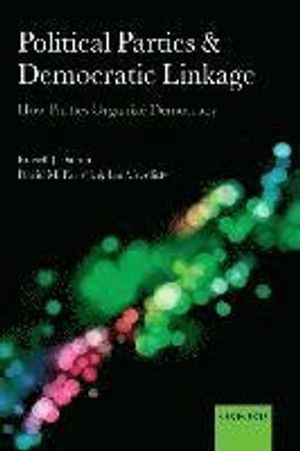

Political parties and democratic linkage : how parties organize democracy
- Utgiven: 2011
- ISBN: 9780199674961
- Sidor: 258 st
- Förlag: Oxford University Press
- Format: Häftad
- Språk: Engelska
Om boken
Åtkomstkoder och digitalt tilläggsmaterial garanteras inte med begagnade böcker
Mer om Political parties and democratic linkage : how parties organize democracy (2011)
2011 släpptes boken Political parties and democratic linkage : how parties organize democracy skriven av Russell J. Dalton. Den är skriven på engelska och består av 258 sidor. Förlaget bakom boken är Oxford University Press.
Köp boken Political parties and democratic linkage : how parties organize democracy på Studentapan och spara uppåt 78% jämfört med lägsta nypris hos bokhandeln.
Referera till Political parties and democratic linkage : how parties organize democracy
Harvard
Oxford
APA
Vancouver



















